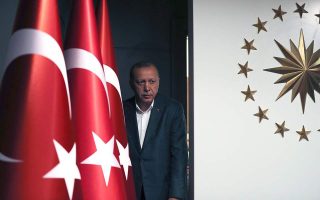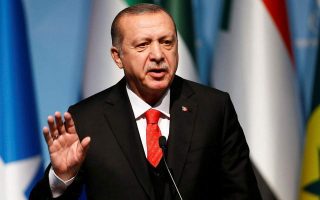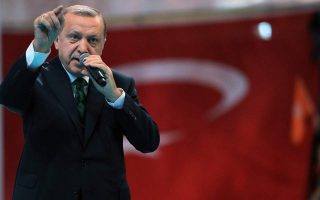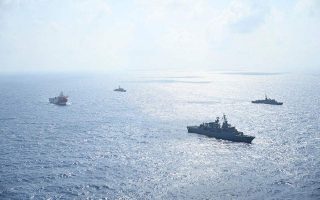Judge Ankara by its actions not its words
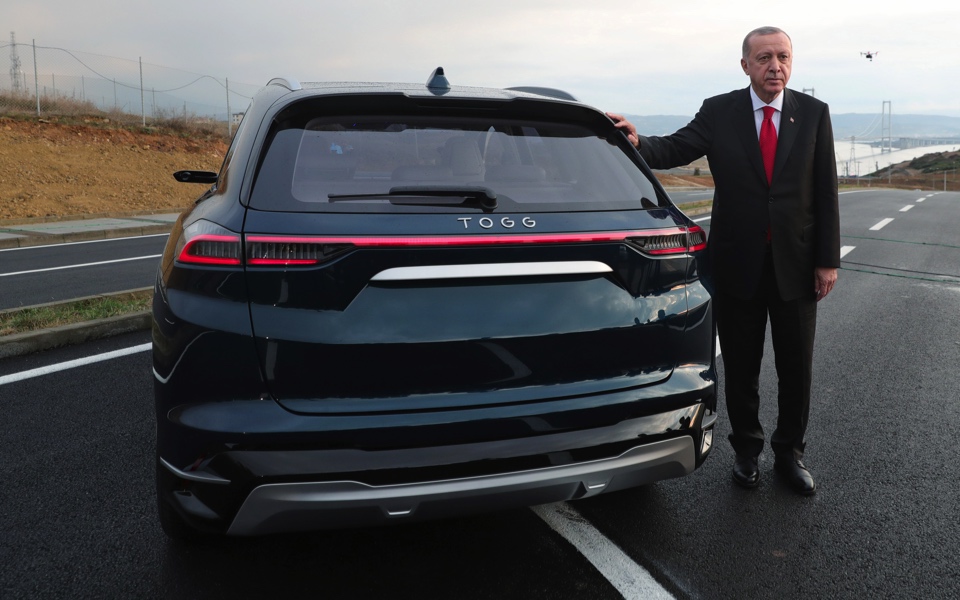
Almost every single US secretary of state has visited Greece since George Marshall in 1948. Mike Pompeo, however, will not only be the first secretary of state to visit Greece twice, but he will also be the first to travel to Souda Bay, site of the largest US military facility in the Eastern Mediterranean.
His visit, coming just weeks after his first visit to Cyprus, is as much about Turkey as it is Greece. Successive US presidents referred to the relationship between Turkey and the United States as a “special” or “model” partnership. What made that relationship strong was that warm relations between presidents stood upon a broader foundation: military partnership, a strong caucus in the US Congress, effective lobby groups, and a broader civil society partnership.
Today, the Erdogan-Trump relationship may be strong, but the foundation upon which it rests is crumbling. For Turkish military officers serving under Recep Tayyip Erdogan, postings in the United States or within NATO are detriments to advancement or cause for suspicion. Senior American officers are more likely today to know Turkish counterparts now imprisoned than they are to know the new generation promoted to take their place.
The Turkish Embassy in Washington used to gauge its influence by counting the members of the Congressional Turkey Caucus. The purpose of the caucus was in general to advance bilateral relations. In practice, membership guaranteed junkets where members received the royal treatment. In 2017, the caucus numbered 159 members; today, it is just 101. Not even its perks offset Erdogan’s stigma.
The same is true for lobby groups. Whether their focus was culture, business or defense, Turkish groups once operated openly and effectively in Washington because they represented the spectrum of partisan opinion in Washington, and included Turkish counterparts from as many political parties as sat in Parliament. To join a US-Turkey lobby group today, however, means endorsing Erdogan’s agenda in a way few credible American businessmen are willing to do. Not only has Turkey lost Congress, but it has also lost those most capable of whispering into the ears of congressmen in the clubs and at the cocktail parties where the real business occurs.
Nor are think tanks (at least those not those engaged in pay-to-play schemes) willing to host Erdogan due to the antics of his bodyguards at the Brookings Institution in 2016 or in Sheridan Circle the following year. Instead, Erdogan relies on those institutions he can bribe or those expressly founded as a shadow lobby. They have become, on the Washington think-tank scene, the equivalent of what the Turkish Republic of Northern Cyprus is on the world stage: a Turkish fiction neither recognized nor taken seriously by anyone outside Turkey.
Frankly, Erdogan has little use for US-Turkey bilateral ties. He despises the United States and its liberal political culture, and believes he can achieve what he needs by directly cultivating the US president. This worked with Bush, Obama and Trump, but the utility of that strategy may be ending.
Within the United States (and European Union), there are two broad views about the future of Turkey’s relationship with the West. The first, espoused by those most sympathetic to Turkey, is that Turkey is too important to lose. They have rationalized every red line crossed by Erdogan: support for the Islamic State and Al Qaeda-affiliated groups, Turkey’s turn toward Russia, the crackdown on press freedom and, most recently, attacks on Turkey’s Christian heritage. Others argue that the changes implemented by Erdogan will define Turkey long after his exit: He has reshaped the Turkish military, reoriented Turkey’s foreign policy, indoctrinated over 30 million Turkish schoolchildren, and incited a generation.
Whatever analytical camp, the policy response should be the same: Judge Ankara by its actions rather than words and calibrate policy toward reality rather than wishful thinking. There can be no moral equivalence: Erdogan’s complaints about the Lausanne Treaty do not mean subsequent challenges are legitimate. To offer validity to Turkish fantasies does not advance diplomacy, but retards it by creating a minefield of new disputes across the region. Pompeo’s trip to Souda Bay suggests the realists are now ascendant within the State Department. It may not be possible to expel Turkey from NATO (NATO has no provision for expulsion) but it is possible to quarantine Turkey and leave it behind as the United States and other members rely instead on ad hoc partnerships such as those now developing in the Eastern Mediterranean. To solve the Turkey problem, therefore, it is essential to advance US-Greek relations. If Turkey returns to the community of responsible nations, both Washington and Athens might embrace it. Until that time, however, both should treat Turkey like the rogue nation it has become.
Michael Rubin is a resident scholar at the American Enterprise Institute.


